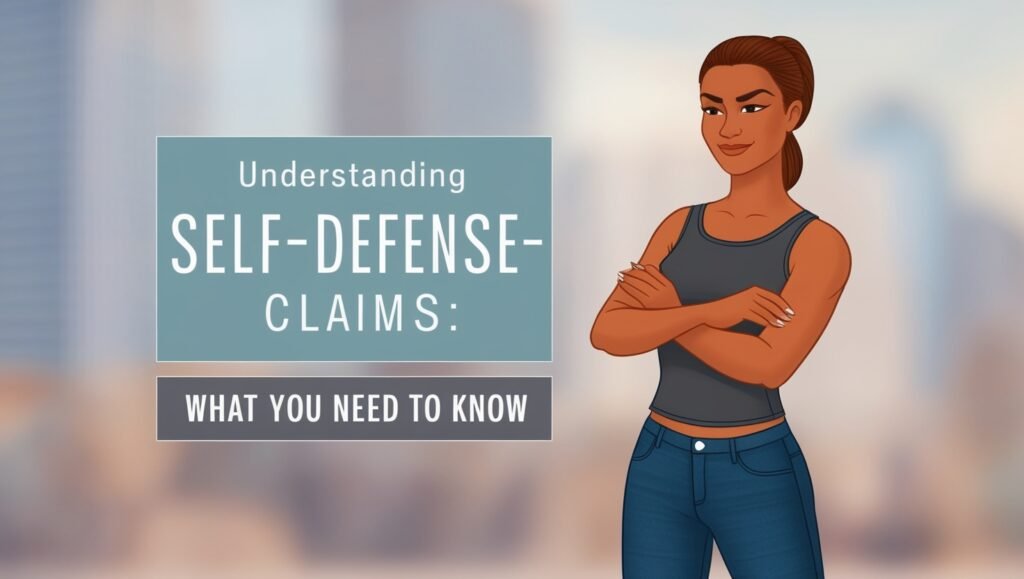Self-defense claims arise when individuals have used force to protect themselves from harm, asserting that such force was necessary and justified. This legal justification plays a crucial role in criminal defense strategies across various jurisdictions, including those handled by a Los Angeles murder defense law firm.
The primary aim is to demonstrate that the defendant’s actions were a legitimate response to an imminent threat. Understanding self-defense requires examining the defendant’s physical and mental state during the incident and the circumstances leading up to the use of force. It’s an intricate balance between reacting to danger and ensuring the response is not excessive.
The Legal Framework Behind Self-Defense
Several elements constitute a valid self-defense claim. These include the immediacy of the threat, proportionality of the force used, and a reasonable perception of risk. Legal systems typically require the defendant genuinely believed they were in immediate danger, and the force used was proportional to the threat.
Understanding this framework is essential for anyone involved in such cases. The need for rapid judgment during threatening situations often complicates these determinations, making it vital for individuals to be aware of their legal rights and the potential consequences of their actions.
Stand Your Ground vs. Duty to Retreat
Laws regarding self-defense can differ significantly based on jurisdiction, with some areas adhering to “Stand Your Ground” principles while others impose a “Duty to Retreat.” In “Stand Your Ground” states, individuals have the right to use force without retreating, provided they are in a place they have a right to be. Conversely, the “Duty to Retreat” requires individuals to avoid conflict if safely feasible.
Recognizing these distinctions is crucial as they can dramatically impact legal outcomes. Understanding the societal and legal philosophies that underpin these doctrines also sheds light on how different communities view personal safety and self-protection.
Challenges in Proving Self-Defense
Proving a self-defense claim is inherently complex, as it hinges on subjective perceptions of threat and appropriateness of response. Legal practitioners must meticulously gather and present evidence to support the claim, often relying on eyewitness testimony, expert analysis, and physical evidence.
This complexity underlines the necessity of skilled legal representation. The defense’s ability to convincingly present their client’s state of mind and situational circumstances is often the deciding factor in such cases.
The Role of Evidence in Supporting Claims
Evidence is pivotal in corroborating the circumstances under which self-defense was utilized. This encompasses video footage, medical reports, forensic evidence, and more. Each piece contributes to constructing a narrative that justifies the defendant’s actions under legal scrutiny, emphasizing the meticulous nature of building a self-defense case. Thorough evidence collection and analysis are essential to substantiate claims, especially when digital evidence can be critical to the outcome.
Impacts of Location on Self-Defense Laws
Self-defense laws can vary even within states, reflecting local norms and legal precedents. Demographic variations and historical context can influence how self-defense cases are judged in diverse metropolitan areas like Los Angeles. Understanding regional legal climates is thus crucial for effective defense strategies, ensuring all local statutes and judicial attitudes are considered.
The diverse cultural and socioeconomic landscape of Los Angeles, in particular, can result in differing interpretations and applications of the law, emphasizing the importance of localized legal expertise in handling such cases.
Seeking Legal Counsel
Navigating the complexities of self-defense claims demands expert legal guidance. Engaging with an experienced attorney is critical to securing a robust defense, particularly in nuanced jurisdictions. Such professionals provide invaluable insights into legal processes, enhance the credibility of arguments, and strategically position arguments within the statutory and common law framework. Their expertise helps navigate the legal intricacies and plays a crucial role in advocating for the defendant’s rights and ensuring justice.
